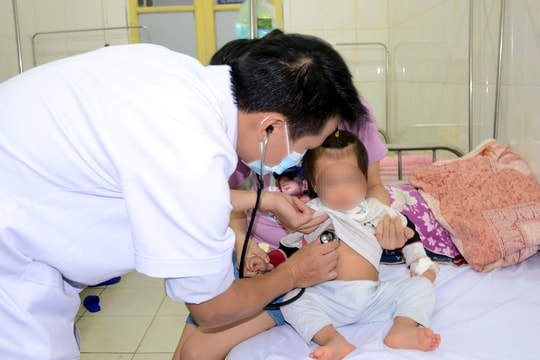Japan extends state of emergency to deal with Covid-19
Japanese Prime Minister Abe Shinzo confirmed tonight (April 30) that he will extend the state of emergency in the country to deal with the Covid-19 epidemic.
In a press interview, Prime Minister Shinzo Abe said that it would be difficult to return to normal life until May 7, when the state of emergency ends. Therefore, the state of emergency must be extended for specific periods of time.
The duration of the state of emergency is being adjusted, expected to last until May 25.
|
| Prime Minister Abe Shinzo. Illustration photo: KT |
Regarding the issue of providing 2 million yen in support for each small and medium-sized enterprise and small-scale producer, the procedures are currently being carried out. The Prime Minister pledged that the support money will reach the enterprises as soon as possible on May 8.
He also said that the current medical situation in Japan is extremely difficult. A doctor is now under great pressure when having to take responsibility for saving many lives. At the same time, he assessed that in the 3 weeks of applying the state of emergency nationwide, the government has received a lot of cooperation from the people, from restricting travel and gatherings, to temporarily closing schools. The Prime Minister thanked the people for this cooperation and continued to hope for cooperation in the future, especially during the long holiday.
It is expected that tomorrow (May 1), a conference of experts will be held to assess the implementation of the state of emergency in the recent past, announce the infection status, analyze the situation and propose new measures to prevent the Covid-19 epidemic.
On April 7, Japan declared a state of emergency in the first seven prefectures, including Tokyo. Then, on April 16, a nationwide state of emergency was declared.
As of today, Japan still has more than 200 new infections, bringing the total number of infections to 14,976. The number of deaths is 455. Tokyo is still the place with the most infections with more than 4,000 people, accounting for nearly 1/3 of the total number nationwide./.




.jpg)
![[Infographics] 5 biện pháp phòng, chống dịch COVID-19 [Infographics] 5 biện pháp phòng, chống dịch COVID-19](https://bna.1cdn.vn/thumbs/540x360/2025/05/22/anh-2.jpg)

-5b8619d675cc4f38cedd8c853332ddab.jpg)

